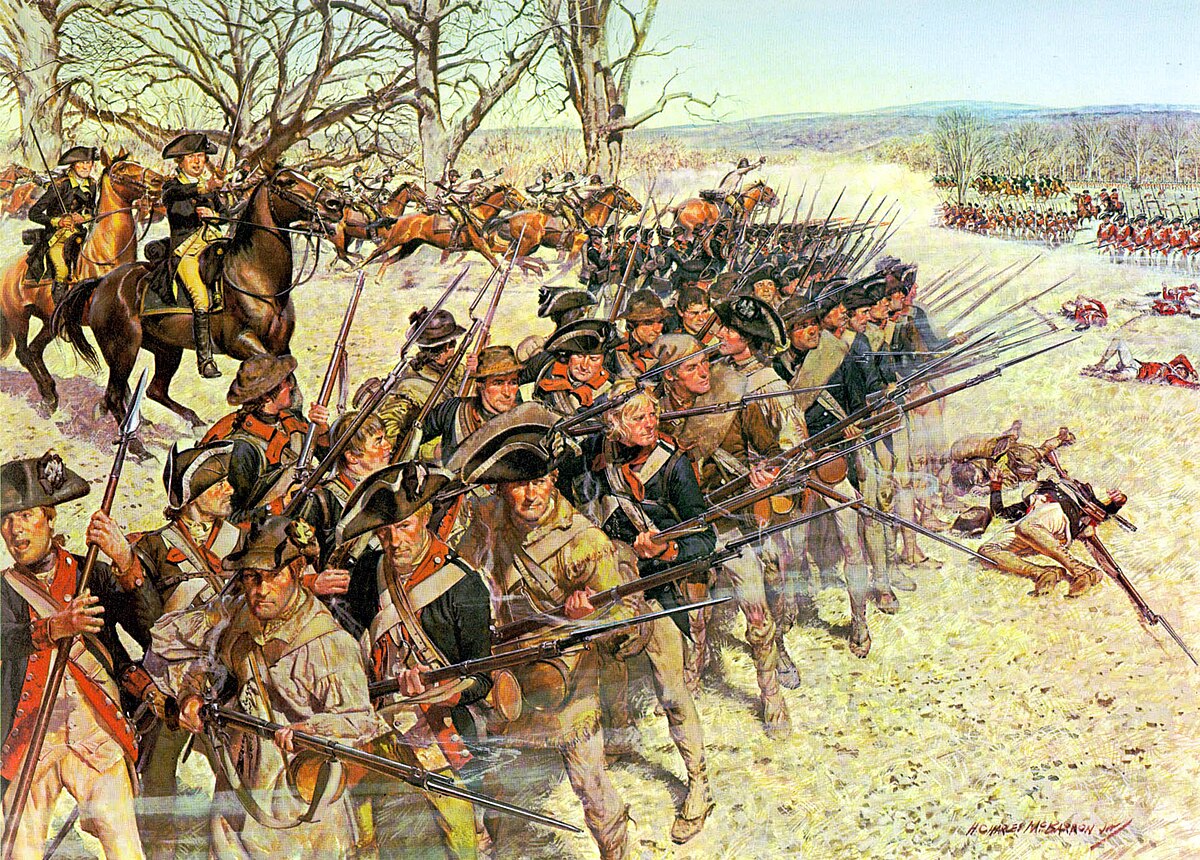
Battle of Guilford Court House
Greensboro, North CarolinaOn 18 January, Cornwallis learned he had lost one-quarter of his army at the Battle of Cowpens. Yet he was still determined to pursue Greene into North Carolina and destroy Greene's army. At Ramsour's Mill, Cornwallis burned his baggage train, except the wagons he needed to carry medical supplies, salt, ammunition, and the sick. On 14 March, Cornwallis learned that Greene was at Guilford Court House. On 15 March, Cornwallis marched down the road from New Garden toward Guilford Courthouse. General Charles Cornwallis 2,100-man British force defeated Major General Nathanael Greene's 4,500 Americans. The British Army, however, suffered considerable casualties (with estimates as high as 27% of their total force).[62]
The battle was "the largest and most hotly contested action"[63] in the American Revolution's southern theater. Before the battle, the British had great success in conquering much of Georgia and South Carolina with the aid of strong Loyalist factions and thought that North Carolina might be within their grasp. In fact, the British were in the process of heavy recruitment in North Carolina when this battle put an end to their recruiting drive. In the wake of the battle, Greene moved into South Carolina, while Cornwallis chose to march into Virginia and attempt to link with roughly 3,500 men under British Major General Phillips and American turncoat Benedict Arnold. These decisions allowed Greene to unravel British control of the South, while leading Cornwallis to Yorktown, where he eventually surrendered to General George Washington and French Lieutenant General Comte de Rochambeau.
